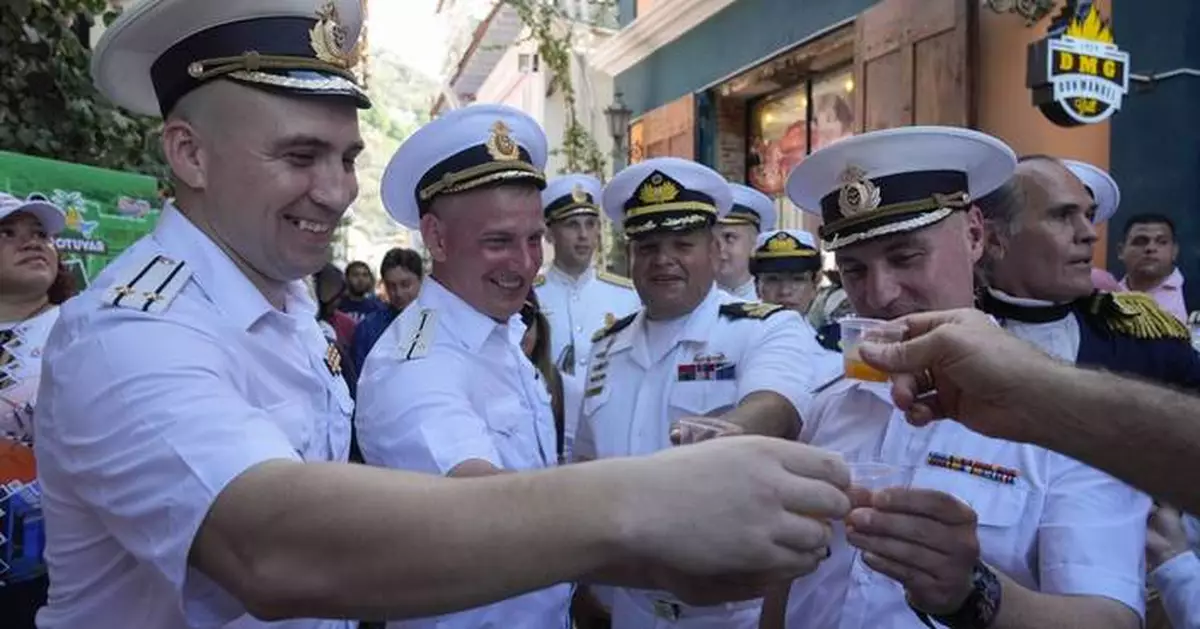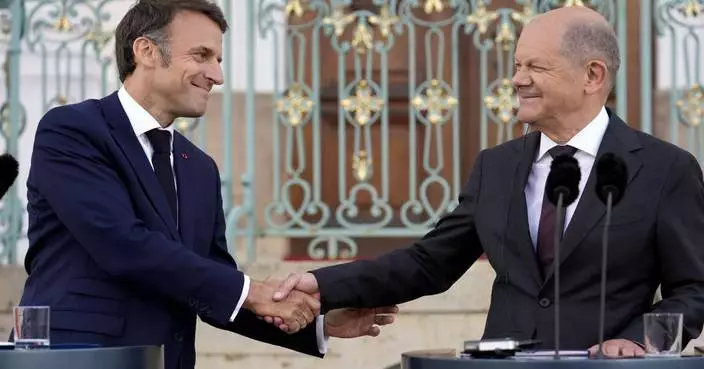CARACAS, Venezuela (AP) — Two Russian naval ships docked Tuesday in the Venezuelan port of La Guaira after exercises in the Atlantic Ocean that Moscow said were to “show the flag” in remote, important regions, and an initial stopover in Cuba.
The frigate Admiral Gorshkov and the oil tanker Akademik Pashin are part of Russia’s Northern Fleet, which since May 17 has been carrying out tasks that include “guaranteeing the Russian naval presence” in “remote areas of the oceans,” Russian news agency Tass cited Russia’s Ministry of Defense as saying.
Click to Gallery
CARACAS, Venezuela (AP) — Two Russian naval ships docked Tuesday in the Venezuelan port of La Guaira after exercises in the Atlantic Ocean that Moscow said were to “show the flag” in remote, important regions, and an initial stopover in Cuba.
Russian crew members attend a welcoming tour by official authorities in La Guaira, Venezuela, after the Almirante Gorshkov frigate and Akademik Pashin oil tanker of the Russian Navy docked there, Tuesday, July 2, 2024. (AP Photo/Ariana Cubillos)
Venezuelan Vice Adm. Edward Centeno Mass, left, speaks with a member of the Russian Armed Forces during a welcoming tour by official authorities in La Guaira, Venezuela, after the Almirante Gorshkov frigate and Akademik Pashin oil tanker of the Russian Navy docked there, Tuesday, July 2, 2024. (AP Photo/Ariana Cubillos)
Russian crew members attend a welcoming tour by Venezuelan authorities in La Guaira, Venezuela, after the Almirante Gorshkov frigate and Akademik Pashin oil tanker of the Russian Navy docked there, Tuesday, July 2, 2024. (AP Photo/Ariana Cubillos)
Russian crew members pose for a photo with a girl during a welcoming tour by Venezuelan authorities in La Guaira, Venezuela, after the Almirante Gorshkov frigate and Akademik Pashin oil tanker of the Russian Navy docked there, Tuesday, July 2, 2024. (AP Photo/Ariana Cubillos)
Russian crew members toast with a traditional Venezuelan drink during a welcoming tour by official authorities in La Guaira, Venezuela, after the Almirante Gorshkov frigate and Akademik Pashin oil tanker of the Russian Navy docked there, Tuesday, July 2, 2024. (AP Photo/Ariana Cubillos)
The stopover was to last several days and highlight the close ties between Moscow and Venezuelan President Nicolás Maduro’s government.
Like his predecessor, the late President Hugo Chávez, Maduro has forged a close relationship with Russia. The visit comes before Maduro seeks reelection in July 28 elections.
Venezuelan authorities have not reported the arrival of the Russian vessels, which could barely be seen from afar docked at La Guaira, but Associated Press journalists saw their crewmembers in the city’s historic center.
In mid-June, the Admiral Gosrhkov and the tanker were among the Russian vessels that docked in Havana, Cuba.
The other vessels present at that stop included a nuclear-powered submarine, and they stayed docked there for five days following drills in the Atlantic Ocean. The exercise was seen by some as a show of strength by Moscow against the backdrop of tensions as U.S. and other Western nations support Kyiv in Russia’s war on Ukraine.
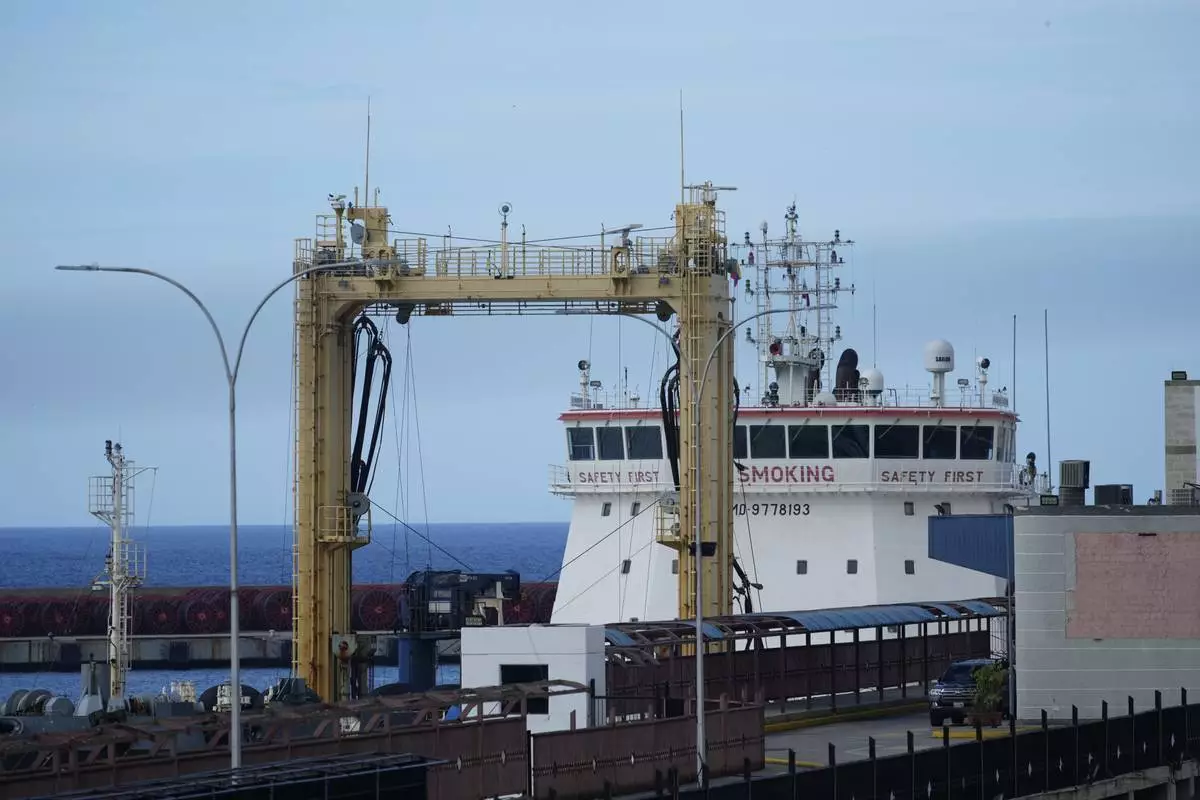
A vessel sits docked at a port in La Guaira, Venezuela, part of a fleet of Russian Naval ships that docked there, Tuesday, July 2, 2024. (AP Photo/Ariana Cubillos)
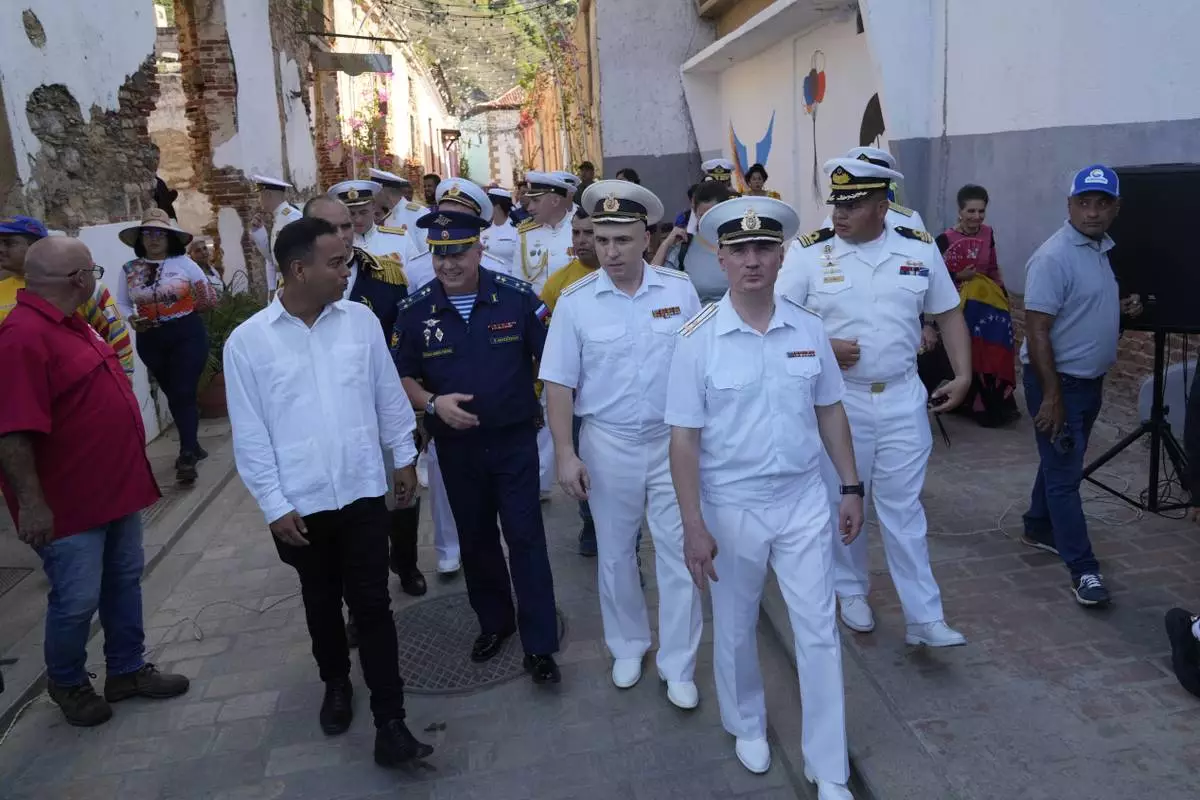
Russian crew members attend a welcoming tour by official authorities in La Guaira, Venezuela, after the Almirante Gorshkov frigate and Akademik Pashin oil tanker of the Russian Navy docked there, Tuesday, July 2, 2024. (AP Photo/Ariana Cubillos)
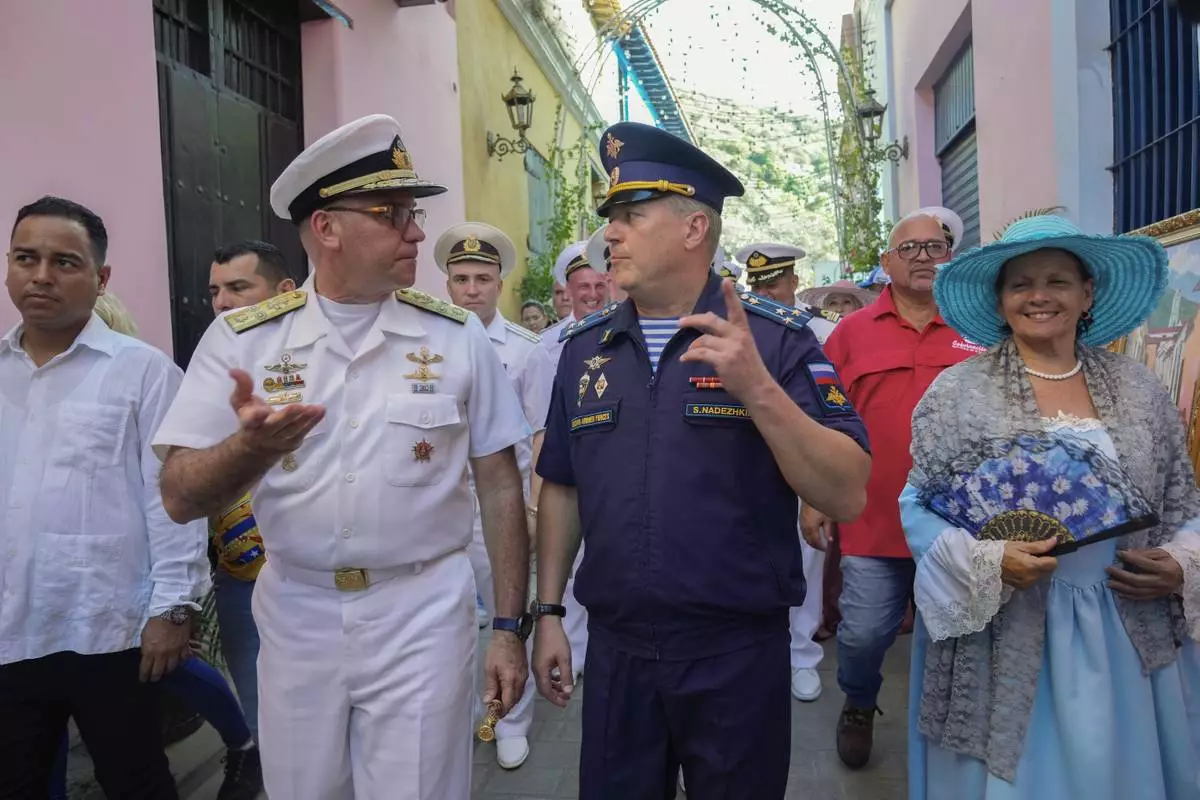
Venezuelan Vice Adm. Edward Centeno Mass, left, speaks with a member of the Russian Armed Forces during a welcoming tour by official authorities in La Guaira, Venezuela, after the Almirante Gorshkov frigate and Akademik Pashin oil tanker of the Russian Navy docked there, Tuesday, July 2, 2024. (AP Photo/Ariana Cubillos)
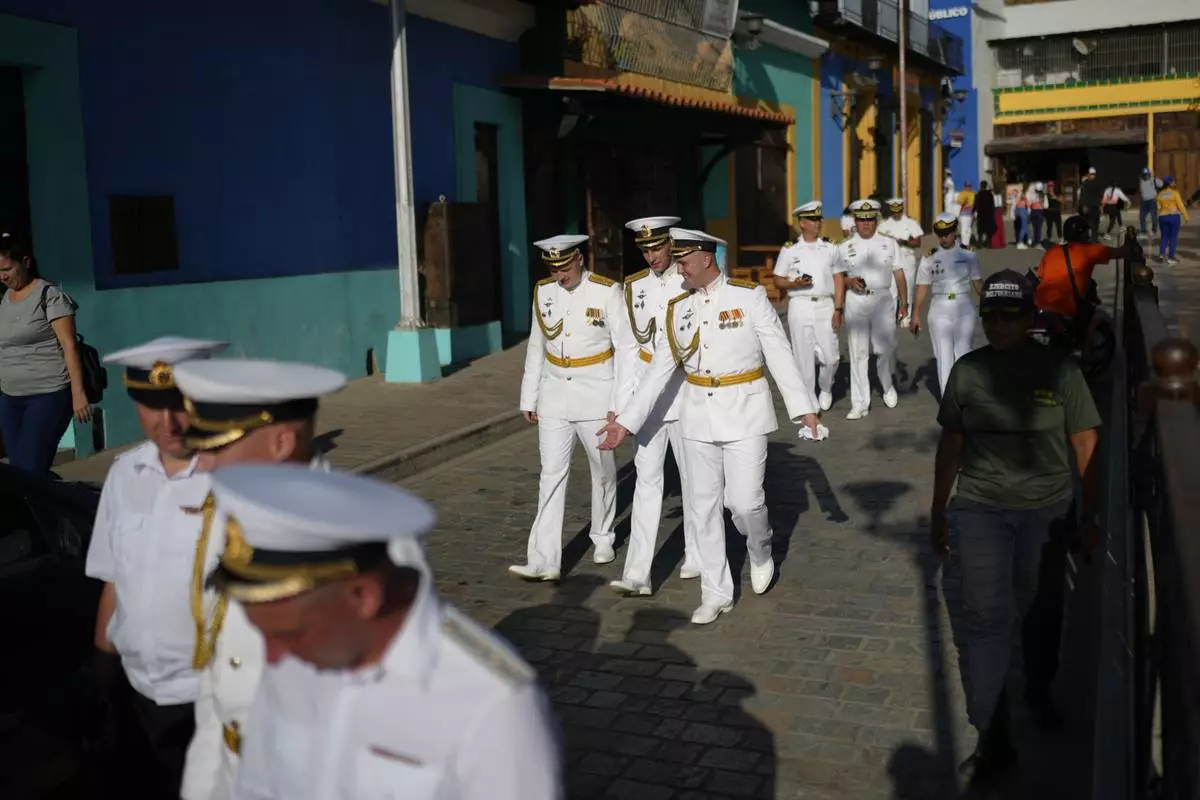
Russian crew members attend a welcoming tour by Venezuelan authorities in La Guaira, Venezuela, after the Almirante Gorshkov frigate and Akademik Pashin oil tanker of the Russian Navy docked there, Tuesday, July 2, 2024. (AP Photo/Ariana Cubillos)
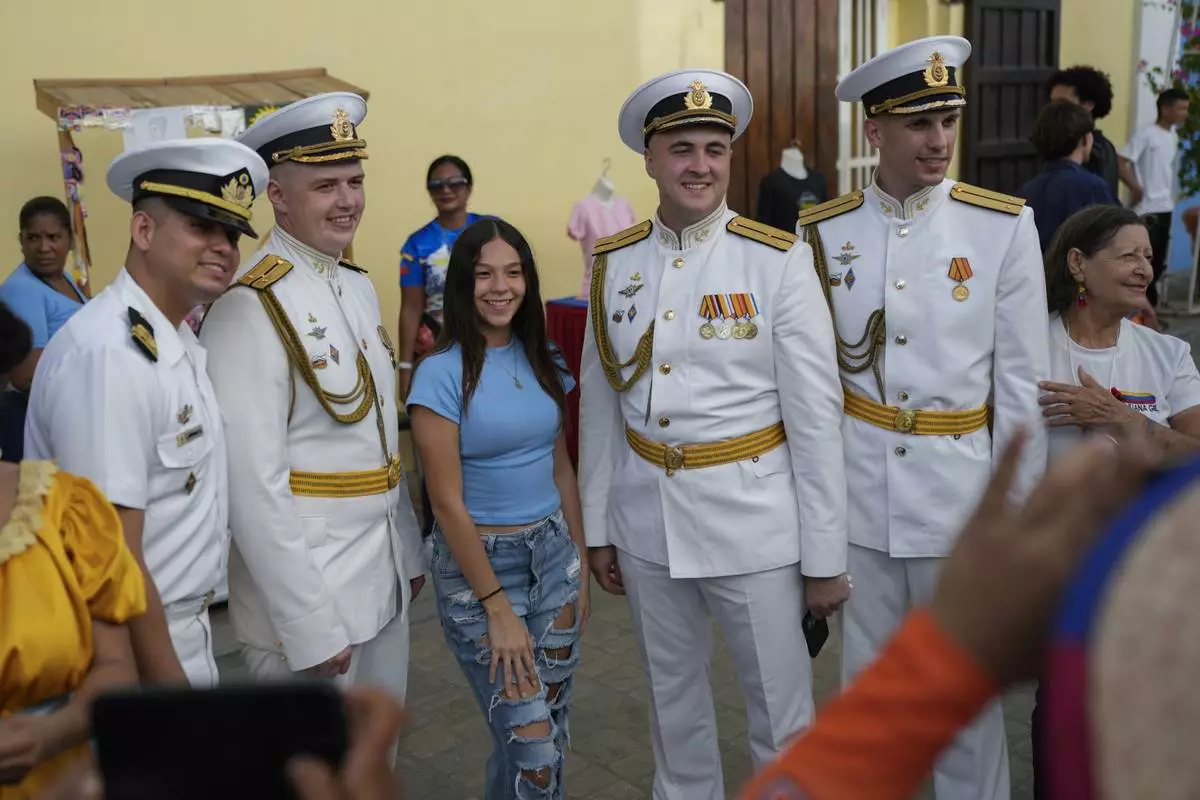
Russian crew members pose for a photo with a girl during a welcoming tour by Venezuelan authorities in La Guaira, Venezuela, after the Almirante Gorshkov frigate and Akademik Pashin oil tanker of the Russian Navy docked there, Tuesday, July 2, 2024. (AP Photo/Ariana Cubillos)
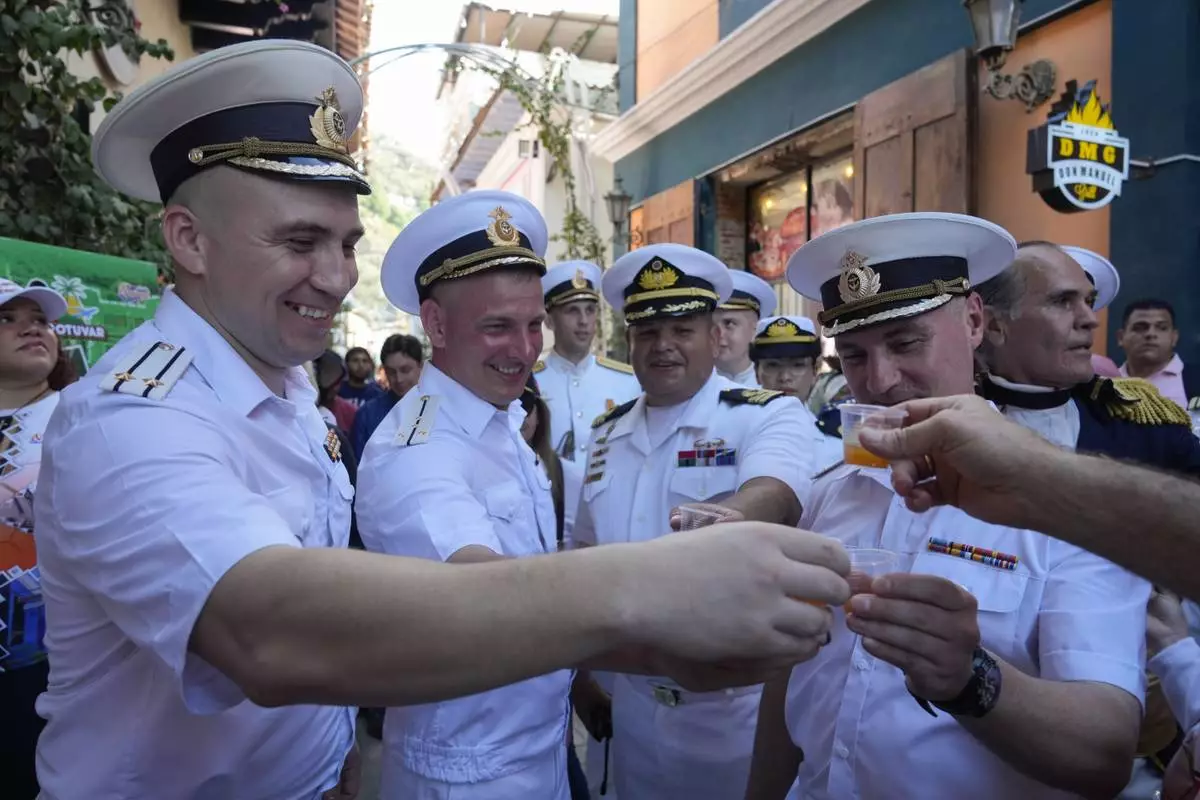
Russian crew members toast with a traditional Venezuelan drink during a welcoming tour by official authorities in La Guaira, Venezuela, after the Almirante Gorshkov frigate and Akademik Pashin oil tanker of the Russian Navy docked there, Tuesday, July 2, 2024. (AP Photo/Ariana Cubillos)
GENEVA (AP) — The United Nations and partners say more migrants and refugees in Africa are heading northward toward the Mediterranean and Europe, crossing perilous routes in the Sahara where criminal gangs subject them to enslavement, organ removal, rape, kidnapping for ransom and other abuses.
A report released Friday by the U.N. refugee and migration agencies and the Mixed Migration Centre research group estimated that land routes in Africa are twice as deadly as the sea lanes across the Mediterranean — which is the deadliest maritime route for migrants in the world.
The report said new conflict and instability in countries including Mali, Burkina Faso and Sudan have been behind a rise in the number of journeys toward the Mediterranean. But Nigeria, Ivory Coast and Guinea were the top countries of origin of migrants.
It comes as many politicians in Europe and beyond, in an important election year, have fanned or drawn support from anti-immigrant sentiment. But conflict, economic strife, repression and the impact of climate change in many countries in the developing world has fanned the flow of migrants across borders nonetheless — at the risk of physical abuse and death.
“Refugees and migrants are increasingly traversing areas where insurgent groups, militias and other criminal actors operate, and where human trafficking, kidnapping for ransom, forced labor and sexual exploitation are rife,” according to a summary of the report, which follows up on a similar study four years ago.
The authors admit there are no comprehensive statistics on deaths on the land routes in Africa. But refugee agency UNHCR has cited a more-than-tripling of the number of refugees and asylum-seekers in Tunisia — a key transit country for migrants aiming to get to Europe — between 2020 and 2023.
The report aimed to spotlight the dangers of land routes that lead to the Mediterranean, which was crossed by over 72,000 migrants and refugees in the first half of this year, and where 785 people have died or gone missing over those six months, according to UNHCR figures.
UNHCR special envoy Vincent Cochetel, citing accounts from some migrants and refugees who survived, said some smugglers dump sick people off pickup trucks ferrying them across the desert, or don't go back to retrieve others who fall off.
"Everyone that has crossed the Sahara can tell you of people they know who died in the desert, whereas you interview people in Lampedusa: Not that many people will tell you about people they know who ... died at sea,” he said, alluding to an Italian island in the Mediterranean.
The U.N.'s International Organization for Migration reported earlier this year that more than 3,100 people died on the Mediterranean crossing last year.
The authors of the report, which drew on testimonies from over 31,000 people, said international action has been inadequate and pointed to “huge gaps” in protection and help for people making the perilous journey.
“In total, 1,180 persons are known to have died while crossing the Sahara Desert for the period January 2020 to May 2024, but the number is believed to be much higher,” it said.
The risk of sexual violence, kidnapping and death was reported by higher percentages of migrants questioned for the report compared to the previous one in 2020, and Algeria, Libya and Ethiopia were considered by respondents as the most dangerous.
The teams have tallied hundreds of cases of organ removals — a practice that has happened for years, Cochetel said. Sometimes, migrants agree to such removals as a way to earn money.
“But most of the time, people are drugged and the organ is removed without their consent: They wake up, and a kidney is missing,” he said.
Libya has emerged as a primary transit point for migrants fleeing war and poverty in Africa and the Middle East. In March, authorities discovered a mass grave containing the bodies of at least 65 migrants in the deserts of western Libya.
Follow AP’s global migration coverage at https://apnews.com/hub/migration
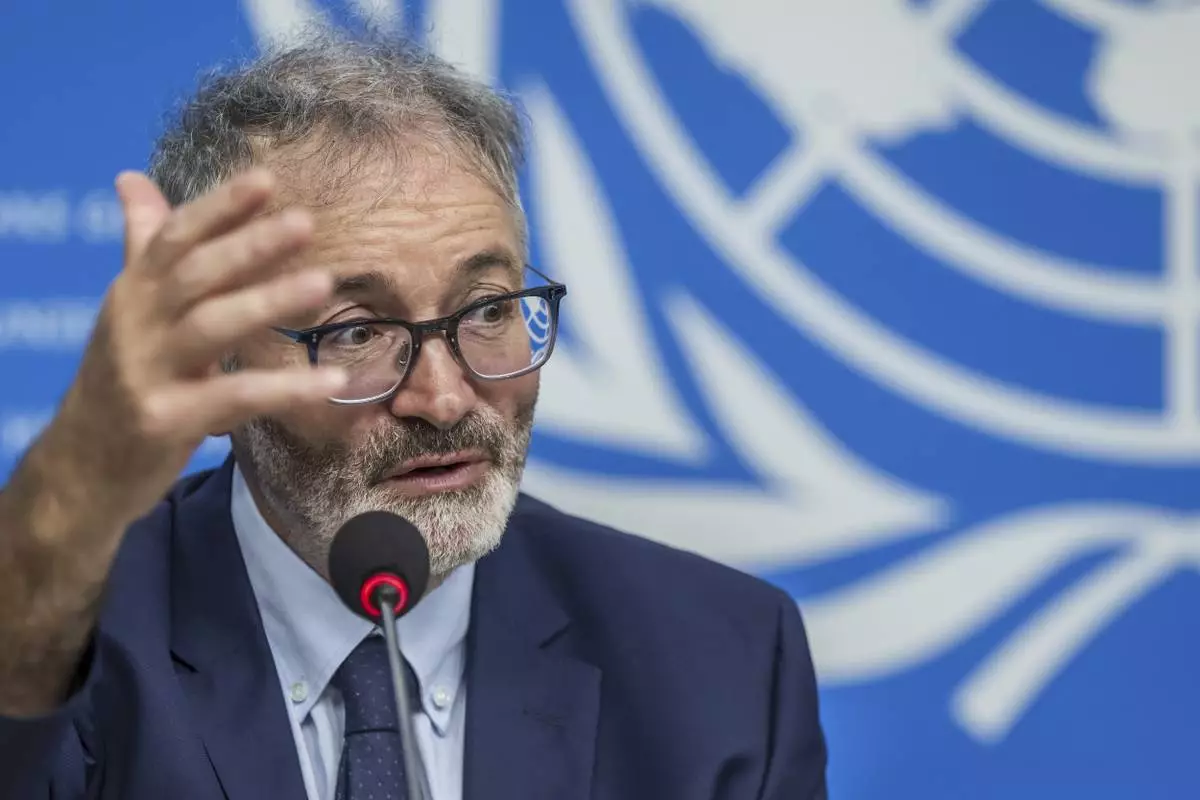
Vincent Cochetel, UNHCR special envoy for the Western & Central Mediterranean Situation, speaks about the launch of new UNHCR / IOM /MMC report on risks faced by refugees and migrants on the Central Mediterranean route during a press conference at the European headquarters of the United Nations in Geneva, Switzerland, Thursday, July 4, 2024. (Martial Trezzini/Keystone via AP)
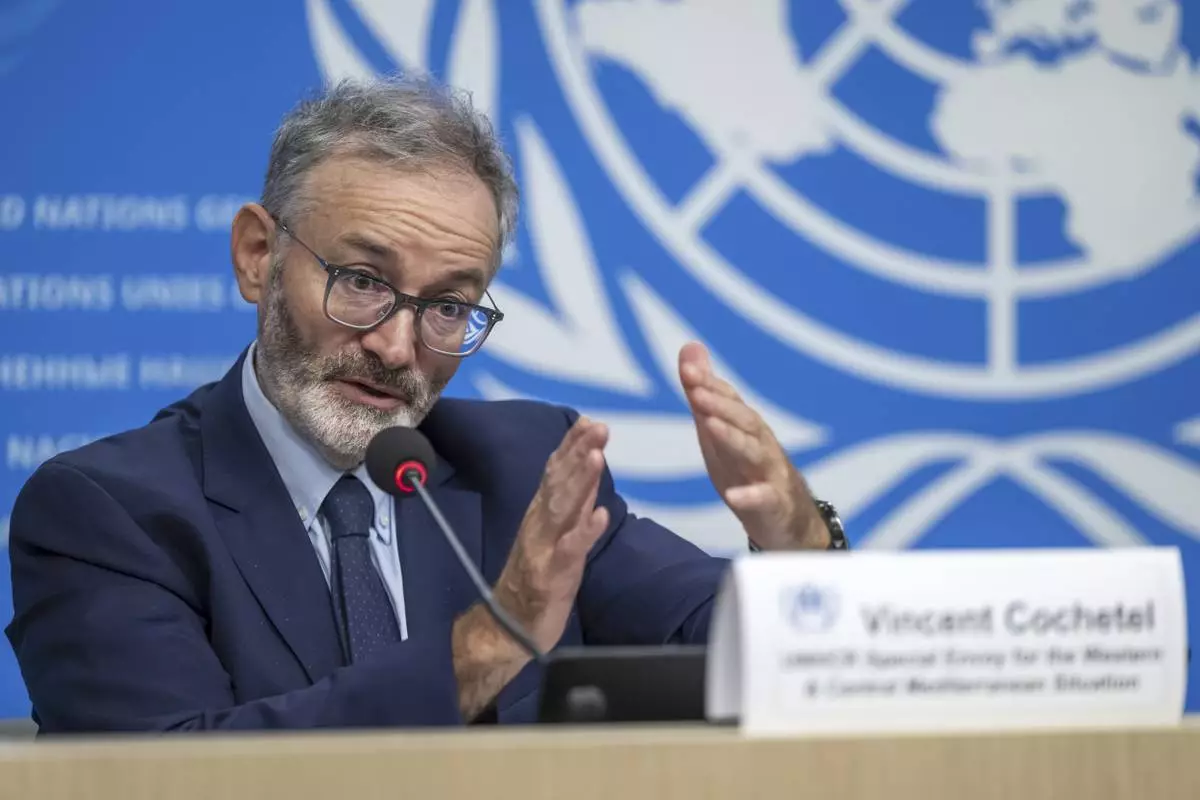
Vincent Cochetel, UNHCR special envoy for the Western & Central Mediterranean Situation, speaks about the launch of new UNHCR / IOM /MMC report on risks faced by refugees and migrants on the Central Mediterranean route during a press conference at the European headquarters of the United Nations in Geneva, Switzerland, Thursday, July 4, 2024. (Martial Trezzini/Keystone via AP)
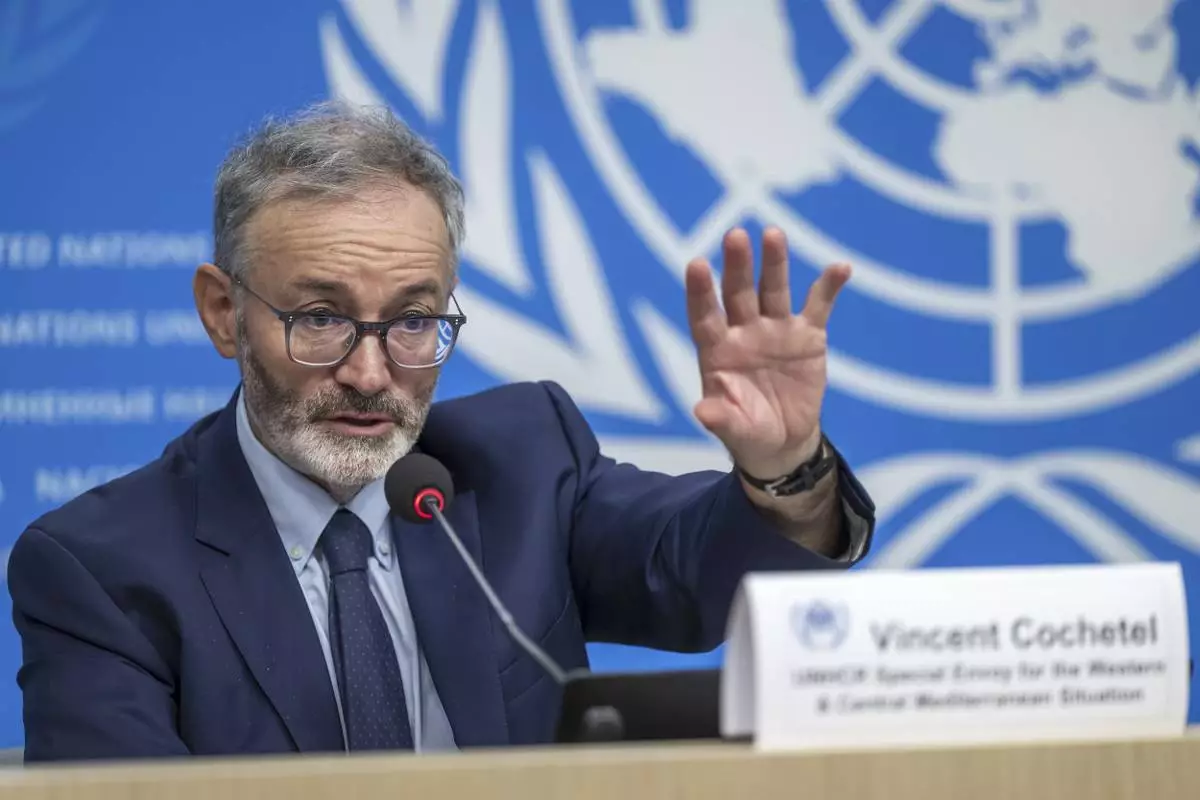
Vincent Cochetel, UNHCR special envoy for the Western & Central Mediterranean Situation, speaks about the launch of new UNHCR / IOM /MMC report on risks faced by refugees and migrants on the Central Mediterranean route during a press conference at the European headquarters of the United Nations in Geneva, Switzerland, Thursday, July 4, 2024. (Martial Trezzini/Keystone via AP)








